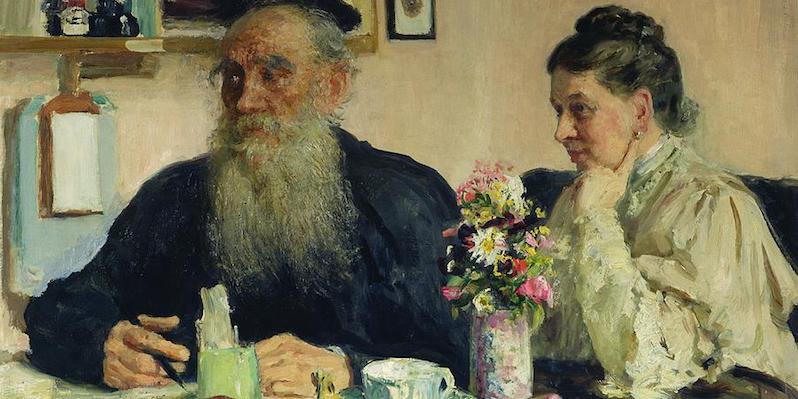Ron Rosenbaum at Literary Hub:
 Deep in a Russian forest, in a well-concealed hermit’s cave, the lone occupant, who hadn’t spoken to another human being for seven years, a hermit named Sergius who had renounced the world, is forced to resist the wiles of a worldly woman who has come to seduce him and almost succeeds had he not, Tolstoy tells us, forfended her intentions by taking an axe and chopping off one of his fingers “below the second joint.”
Deep in a Russian forest, in a well-concealed hermit’s cave, the lone occupant, who hadn’t spoken to another human being for seven years, a hermit named Sergius who had renounced the world, is forced to resist the wiles of a worldly woman who has come to seduce him and almost succeeds had he not, Tolstoy tells us, forfended her intentions by taking an axe and chopping off one of his fingers “below the second joint.”
While, in a contemporaneous Tolstoy novella, a wealthy rural landowner, Evgeny, alone in his study, tries to contain his obsession with the vision of a serving girl with “dark eyes,” and, failing to do so, takes out his pistol and contemplates a choice: whether to murder the serving girl whose laughing eyes have him transfixed, or to put a bullet through his brain to preserve his “honor.” And elsewhere, in a third novella, out on the frozen steppes, the passengers in the crowded compartment of a long-distance train find themselves at the mercy of Pozdnyshev, a confessed wife-murderer, who, Tolstoy tells us, has only just been released on grounds of insanity but insists on taking up the long rail journey by offering his extremely long-winded “explanation” for slashing his wife to death with his saber.
What do these three scenes have in common? Each is the dark center of one of Lev Tolstoy’s trilogy of late novellas whose venomous animus against love, sex, and human reproduction leads to what is his most shocking argument of all: that all of mankind would be better off if it were to die out, exterminate itself by ceasing “swinish” sexual reproduction and abandoning the love that all too often led to it. Exterminate itself. Seriously.
More here.
